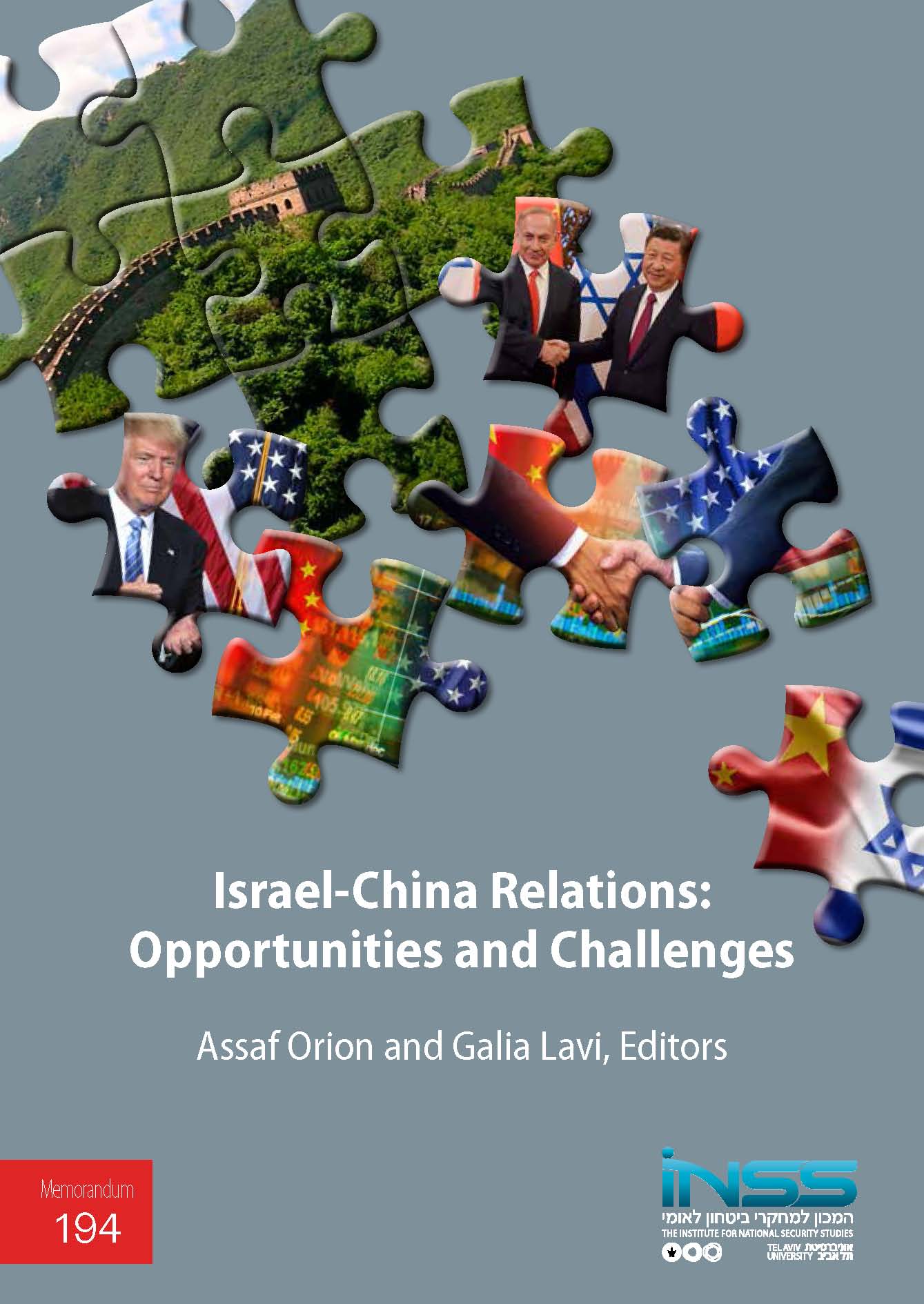Publications
Memorandum No. 194, INSS, August 2019

China is a superpower growing politically, economically, and militarily, and has an international vision and global map of interests. Along with its political and economic programs, its security and military needs have also grown. Thus, there has been an increase in China’s military budget in recent years, along with groundbreaking steps such as building its first independently produced aircraft carrier and establishing its first military base outside of China.1 In October 2017, at the 19th Congress of the Chinese Communist Party, Chinese President Xi Jinping declared that by 2035 China would have a “modern” army and military sector, and would reach the level of “global superpower” by 2049 – the 100th anniversary of the establishment of the People’s Republic of China.2 As of 2018, China was ranked as the world’s fifth largest arms exporter, although it is a distant fifth behind Russia and the United States. During the years 2014-2018, Chinese arms exports made up some 5.2 percent of total global arms exports, constituting an increase of 2.7 percent over the previous five years.3 Chinese military exports to the Middle East began in the mid-1970s, and peaked in the 1980s. Subsequently in decline, today they are negligible in comparison with arms transfers to the region from the United States, Russia, and Western countries. However, a change seems to be emerging, due to converging trends – the expansion of China’s interests and its deepening economic relations in the Middle East, its military-industrial buildup, and the growing attraction of Chinese-made military technology. Noteworthy, for example, is the export of singular low cost products of sufficient quality such as unmanned attack aircraft, which are offered for sale to countries in the region without the policy restrictions imposed by other superpowers.
For Israel, this apparent trend is a challenge on a number of levels: the potential that advanced weapon systems will fall into the hands of Israel’s enemies, particularly Iran and its proxies; the appearance in the “neighborhood” of weapon systems where the technological familiarity with them is low and therefore it is more difficult to build a response to them; the lack of a commitment on the part of China (unlike the United States) to maintain Israel’s qualitative military edge and the lack of communication channels with it on this issue; and increasing competition by China in the field of military exports, where Israel has enjoyed a relative advantage. All these issues warrant increased attention from Israel’s defense establishment to China’s military industries in general and to the Middle East in particular, the establishment of suitable channels of communication with the Chinese government on the issue, and clarification of the issue in discussions with the US administration.


